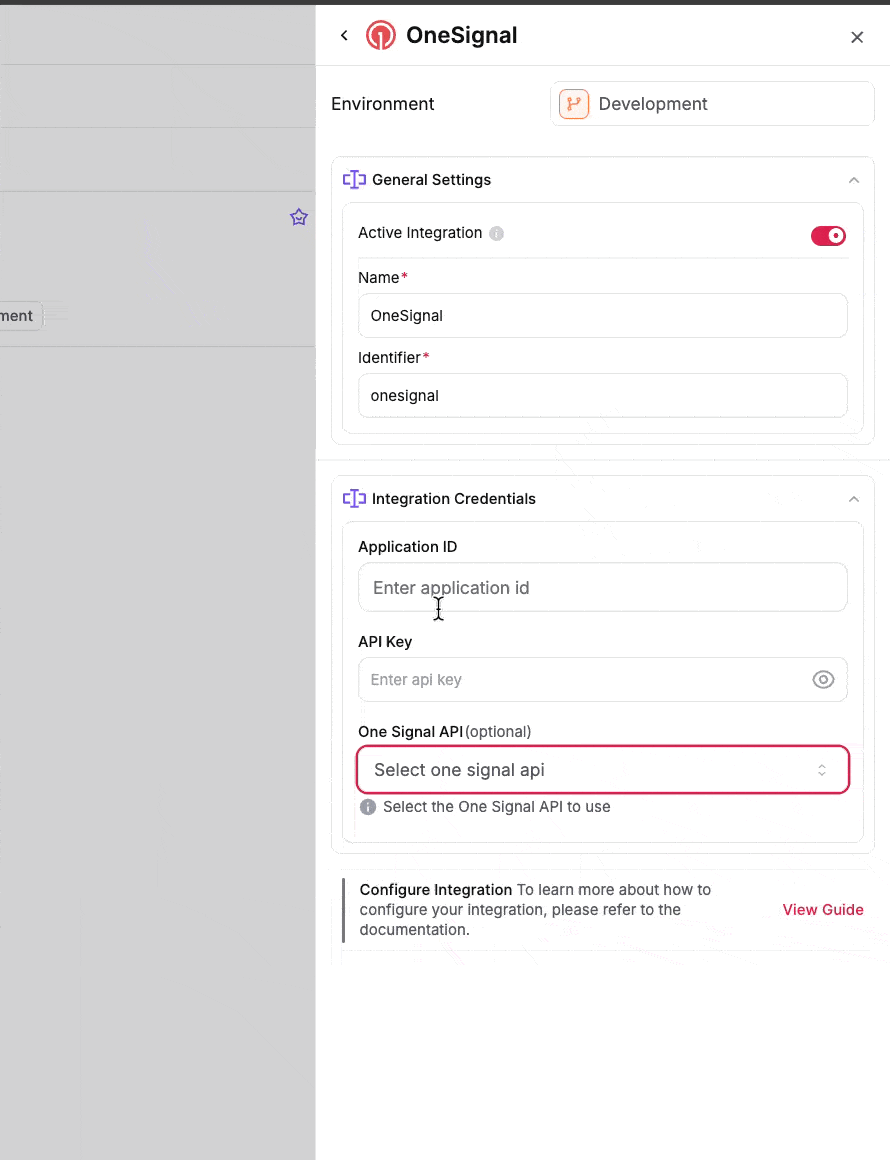Onesignal
Learn how to use the Onesignal provider to send push notifications using Novu
OneSignal is a paid push notification service that supports sending messages via both Apple Push Notification Service (APNs) as well as Firebase Cloud Messaging (FCM).
To configure the OneSignal integration, you will need an active account which has credentials for APNs, FCM or both, and have access to the OneSignal App ID and Rest API Key available via your application's settings page.
Setting the Device Token
Once OneSignal has been configured with your credentials for APNs/FCM, and the OneSignal SDK has been set up and configured for your application, your users will begin to be automatically assigned a unique OneSignal player_id identifier by the SDK.
This identifier allows targeting your user when sending push notifications without having to retrieve the specific Android or iOS device tokens - which are managed by OneSignal.
In order to target the OneSignal user from Novu, you must register the OneSignal player_idas the deviceToken for your Novu subscriber. This value can be retrieved via the OneSignal SDK for your platform.
Once you have the user's player_id value, the deviceToken for your Novu subscriber can be set via:
Checkout the API reference for more details.
SDK Trigger Example
Using external user id
By default, Novu uses player id to send notifications, External ID option can be selected in the onesignal integration settings. If External ID option is selected, deviceTokens stored in subscriber credentials for onesignal provider, will be used as external user ids.
